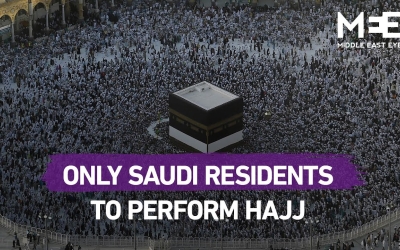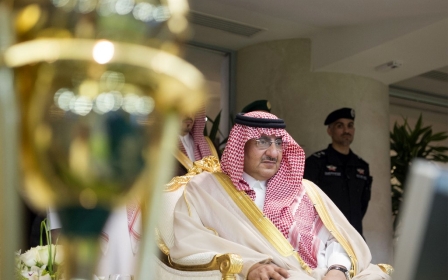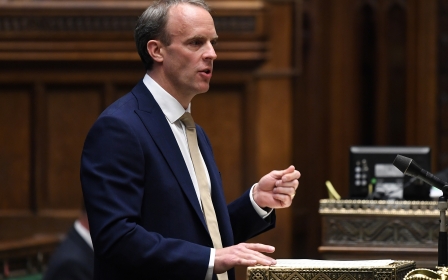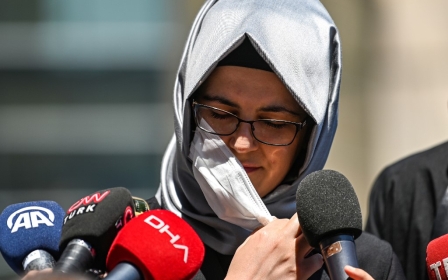Coronavirus: Saudi Arabia releases health guidelines for Hajj pilgrims
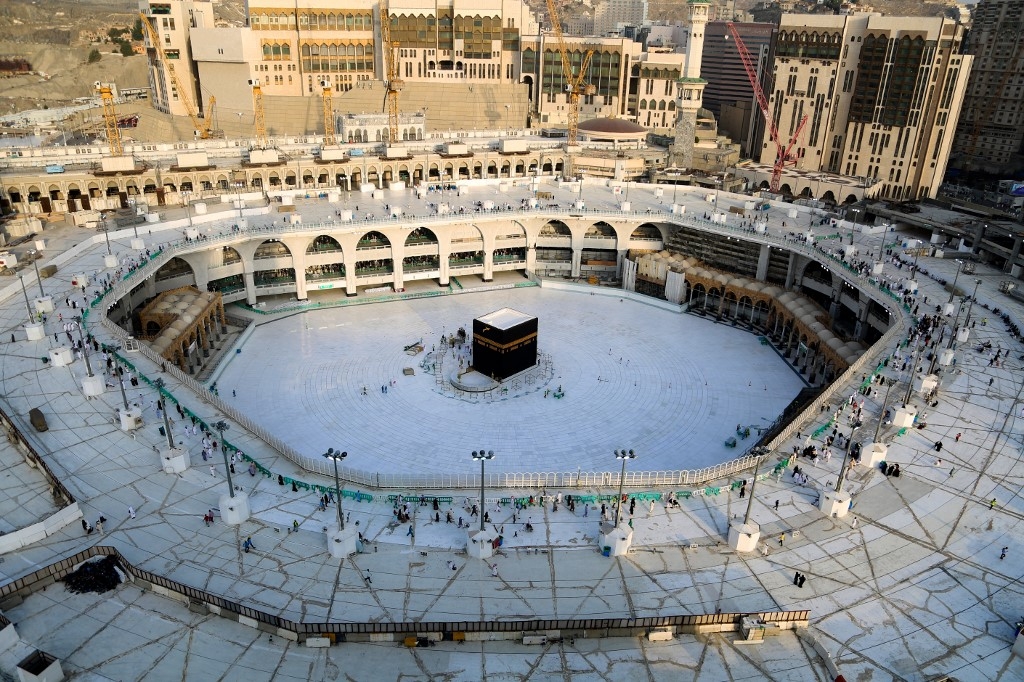
Saudi Arabia has released a series of precautionary measures to prevent the spread of the coronavirus during the upcoming Hajj, including a ban on worshippers from touching the Kaaba and mandatory face masks throughout the five-day pilgrimage.
The guidelines, released on Monday by the Saudi Health Ministry, also say that authorities will establish checkpoints at the entrances of holy sites, where all pilgrims will have their temperatures taken.
Pilgrims with coronavirus symptoms, including fever, shortness of breath, loss of smell and taste, cough or a runny nose will be isolated and only allowed to continue the pilgrimage after they recover and obtain a doctor's note ensuring they do not have the virus.
Riyadh decided last month to drastically limit the Hajj to only those who reside in the kingdom. Only 10,000 Muslims will be able to perform the Hajj later this month, down from the 2.4 million people who performed it last year.
The kingdom suspended the Umrah, a pilgrimage which can be performed at any point, earlier this year. Images of the empty Grand mosque in Mecca, which is usually teeming with worshippers, demonstrated the impact of the disease effects on public interactions.
New MEE newsletter: Jerusalem Dispatch
Sign up to get the latest insights and analysis on Israel-Palestine, alongside Turkey Unpacked and other MEE newsletters
The ministry said that this year's pilgrims will be introduced in small groups to the Grand mosque in Mecca to ensure social distancing during the ritual of tawaf, when worshippers circumbulate the Kaaba seven times. Pilgrims must remain 1.5m away from one another.
The guidelines also prohibit food from entering the holy sites, with strict regulations requiring communal areas to be regularly sanitised.
Communal prayers will be allowed as long as social distancing rules are observed, the ministry said.
Muslims are required to perform Hajj in Mecca, the birthplace of Islam, at least once in their lifetime if it is within their capacity. It takes place in the shape of a chain of rituals during Dhul-Hijjah, the 12th month of the Islamic lunar calendar.
Hajj ends with pilgrims, usually numbering in the millions, standing together on Mount Arafat outside Mecca, where the Prophet Muhammad gave his last sermon.
Muslims across the world celebrate Eid al-Adha holiday, marking the conclusion of the pilgrimage annually.
So far, the kingdom has registered more than 200,000 confirmed coronavirus cases with close to 2,000 deaths.
Middle East Eye delivers independent and unrivalled coverage and analysis of the Middle East, North Africa and beyond. To learn more about republishing this content and the associated fees, please fill out this form. More about MEE can be found here.


